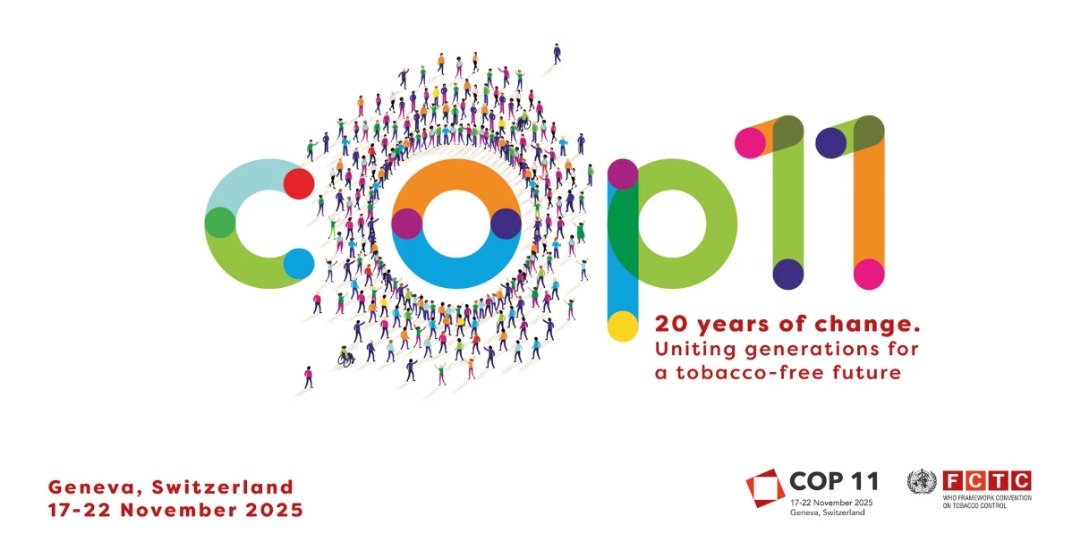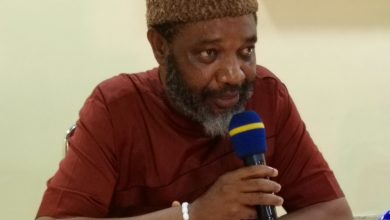
Civil society organisations (CSOs) working in tobacco control have urged Nigeria’s delegation to the Eleventh Session of the Conference of the Parties (COP11) to the World Health Organisation Framework Convention on Tobacco Control (WHO FCTC) to stand firm against interference from the tobacco industry and its allies.
In a joint statement signed on Sunday by Robert Egbe Media and Communication Officer, CAPPA, the groups warned of a renewed global campaign by tobacco multinationals to infiltrate COP11 deliberations through proxies, with the aim of pushing for the legitimisation of nicotine-based and other novel products, including e-cigarettes, under the guise of harm reduction.
The organisations—Nigeria Tobacco Control Alliance (NTCA), Corporate Accountability and Public Participation Africa (CAPPA), Gatefield, Environmental Rights Action/Friends of the Earth Nigeria (ERA/FoEN), Centre for Youth Inclusion and Development, and other public health advocates—cautioned the delegation not to “sell out Nigeria’s public health.”
They further demanded that government representatives reject all industry-linked funding, partnerships, and influence, warning that Nigerians will hold the delegation fully accountable for any action that undermines the fight against tobacco and nicotine addiction.
According to the statement, the Nigerian delegation must uphold the spirit and provisions of Sections 25–28, 33–34, and 38(2) of the National Tobacco Control Act, which collectively prohibit financial and non-financial interactions between government officials and the tobacco industry or its proxies.
They also reminded delegates of their obligations under Article 5.3 of the WHO FCTC, which explicitly mandates Parties to safeguard public health policies from the commercial and vested interests of tobacco companies.
“We are aware that the tobacco industry and its front groups are working overtime to manipulate discussions at COP11 through delegates, pushing narratives that normalise nicotine addiction and weaken existing tobacco control measures,” the statement read. “Nigeria must not be complicit in this devious strategy.”
The groups called on the Nigerian government to demonstrate leadership in protecting its citizens—especially young people—from addiction and exploitation by multinational tobacco corporations seeking to widen their footprint across Africa.
“Tobacco kills over seven million people every year,” the advocates warned. “Now the industry wants to hook a new generation on nicotine using shiny gadgets, false marketing, and manipulation of regulatory officials.”
They described novel nicotine products as “the new faces of the same deadly business,” arguing that so-called harm-reduction devices are part of the industry’s strategy to sustain profits while creating new waves of addiction.
“These nicotine-based products touted as less harmful alternatives are not solutions; they are traps,” the groups said. “The same companies that created a century of death and addiction now want to rebrand themselves as part of the solution. It is deception at its peak, and Nigeria must not fall for it.”
The CSOs insisted that Nigeria’s delegates must “go to Geneva to defend life, not profit,” stressing that they will be held responsible for any stance that strengthens industry interests or weakens public health protections.
They added that industry interference remains the biggest barrier to effective tobacco control globally and warned that legitimising novel nicotine products would roll back gains achieved under the National Tobacco Control Act and other policies.
“We call on Nigerian delegates to stand firm with the global public health community, resist any form of industry influence, and support decisions that advance a tobacco-free future,” the statement concluded.
COP11 will run from 17–22 November in Geneva, bringing together Parties to the Convention to take decisions aimed at curbing nicotine addiction and protecting public health and the environment.
The Meeting of the Parties (MOP) to the Protocol to Eliminate Illicit Trade in Tobacco Products will follow from 24–26 November. The Protocol, in force since 2018, currently has 71 Parties. At the MOP, countries will consider measures to strengthen global efforts to end illicit trade in tobacco products.












888slot com Cùng với hệ thống bảo mật đạt chuẩn SSL 256-bit và đội ngũ hỗ trợ khách hàng 24/7, nhà cái từng bước xây dựng được hình ảnh một nhà cái trẻ nhưng cực kỳ bản lĩnh.
Không phải ngẫu nhiên mà game bài 66b lại chiếm được lòng tin của nhiều người chơi đến vậy, để làm được điều này nhà cái đã không ngừng nỗ lực và cải thiện chất lượng dịch vụ của mình để mang lại những thứ tốt nhất dành cho người chơi.
188v chính thức cung cấp đa dạng phương thức thanh toán phù hợp với thói quen người dùng Việt Nam. Quá trình nạp tiền được thực hiện tức thì, trong khi rút tiền thường hoàn tất trong vòng 15 phút đến 24 giờ tùy phương thức.
xn88 game Đối với người chơi mới, nơi đây mang đến chương trình khuyến mãi nạp tiền lần đầu cực kỳ hấp dẫn. Khi làm thao tác này thì hội viên sẽ nhận được một khoản thưởng tương ứng với tỷ lệ phần trăm trên số tiền nạp, thường từ 50% đến 100%.
https://t.me/s/officials_pokerdom/3727
Giao diện của khuyến mãi 188v rất thân thiện và dễ sử dụng, giúp người chơi dễ dàng tìm kiếm và tham gia các trò chơi yêu thích. Đặc biệt, đội ngũ hỗ trợ khách hàng của khuyến mãi 188v luôn sẵn sàng giải đáp mọi thắc mắc và hỗ trợ bạn trong quá trình chơi game.